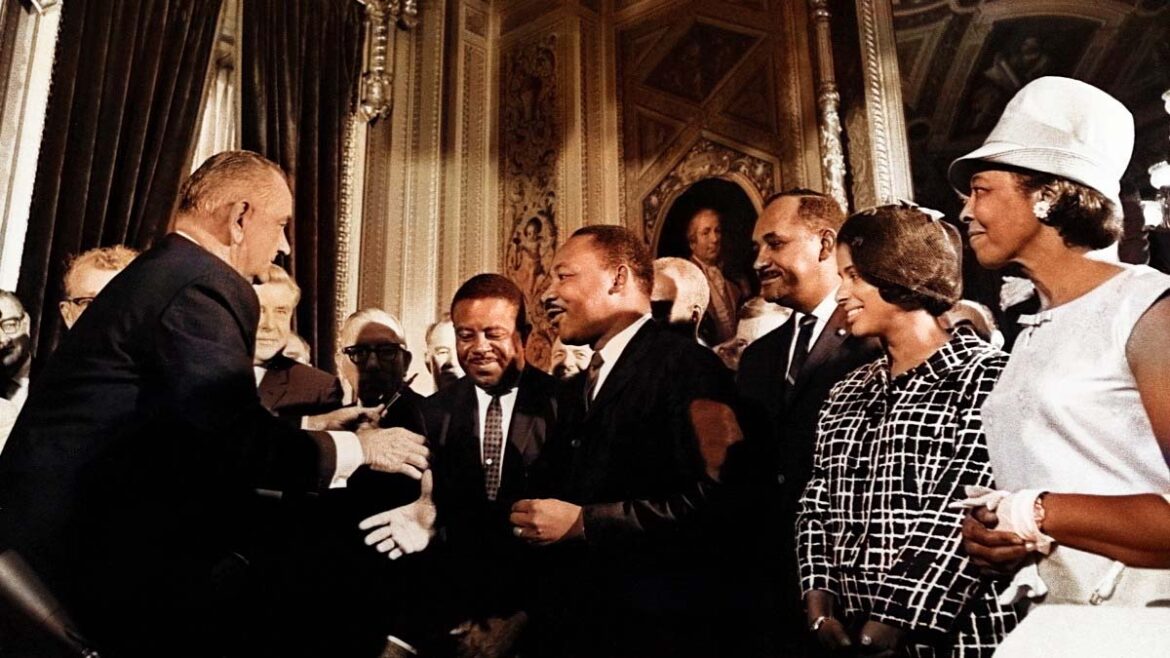In a recent US appellate court decision, the Voting Rights Act of 1965 faced a significant setback, challenging decades of precedent and setting the stage for a potential showdown at the US Supreme Court. The implications of this decision, particularly for the voting rights of Black, Hispanic, and other racial minorities protected under Section 2 of the VRA, are profound and demand our attention as the nation approaches the 2024 elections.
The ruling, originating from Arkansas and delivered by US appellate judge David Stras, underscores the increasing vulnerability of the Voting Rights Act, a cornerstone of democracy. Notably, Stras, appointed by former President Donald Trump, diverged from established Supreme Court precedent to align with a conservative interpretation of the law, echoing concerns raised by Justices Clarence Thomas and Neil Gorsuch. This decision challenges the assumption that Section 2 is privately enforceable, marking a departure from the legal landscape that has shaped voting rights for over half a century.
At the heart of the matter is the question of whether private plaintiffs, such as the NAACP Legal Defense Fund or the American Civil Liberties Union, retain the right to challenge VRA violations under Section 2. The 2-to-1 ruling contends that only the US attorney general possesses this explicit right, raising concerns about the potential erosion of a crucial mechanism that has safeguarded minority voting rights and fair representation.
The dissenting voice, Judge Lavenski Smith, emphasizes a foundational principle of American law: where there is a legal right, there must also be a legal remedy. He argues that Congress never intended to leave the enforcement of such a vital law solely to the federal government, emphasizing the need for private citizens and advocacy groups to have the right to challenge discriminatory practices.
This development is not isolated but part of a broader pattern of challenges to the Voting Rights Act, reflecting the influence of political ideologies on the federal judiciary. The decision aligns with a conservative assault on the act, with previous Supreme Court decisions over the past decade curtailing federal voting protections and granting states more latitude in redistricting and electoral practices.
The historic significance of the Voting Rights Act, enacted during the Civil Rights movement, cannot be overstated. The recent appellate court ruling threatens to unravel its protections, placing the rights of minority voters at risk. While the Supreme Court, as recently as June, affirmed Section 2, the current decision suggests an impending reevaluation of the law’s scope.
As we navigate these turbulent legal waters, the question becomes not just about the interpretation of statutes but about the very essence of American democracy. The right to vote is foundational to self-government and citizenship, and any threat to the Voting Rights Act is a threat to the principles that underpin our democratic society.
This pivotal moment demands our collective attention and action. As the nation hurtles toward the 2024 elections, the integrity of our democracy hangs in the balance. It is incumbent upon us, as engaged citizens, to advocate for the preservation of voting rights, holding true to the values that have defined America’s progress toward a more inclusive and equitable society.
Photo Credit: Corbis/Getty Images


